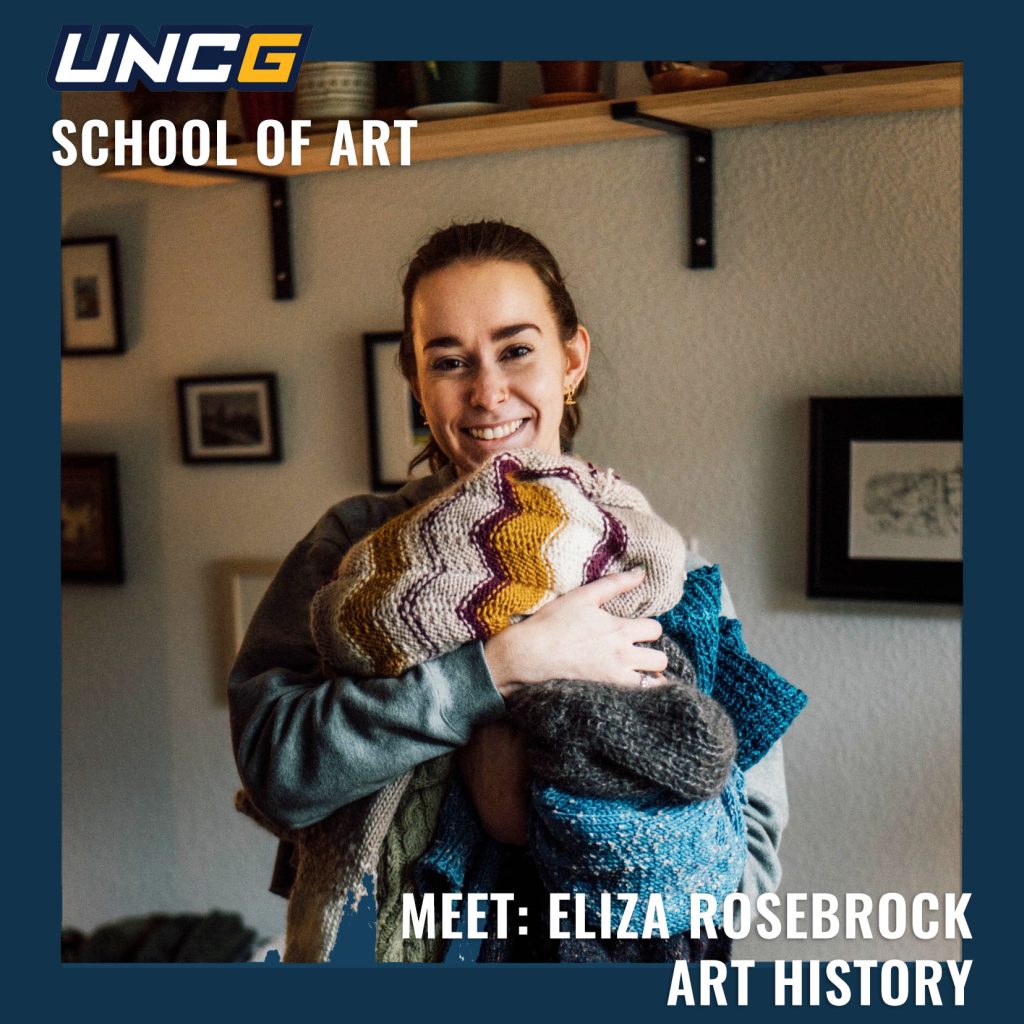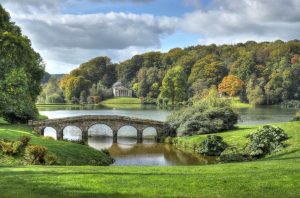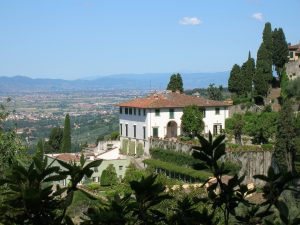
Hi Eliza, please tell us about yourself?
I’m essentially a grandma in a 25-year-old’s body. I love quiet nights in with my partner, knitting and watching movies, organizing and re-organizing our bookshelves, and trying to keep plants alive. However, I’ve also worked in coffee for a few years now, so caffeine fuels a lot of the things I work on. The last couple of years have been pretty tough and intense, but they’ve also allowed me to do a lot of thinking and reflecting on who I am, how I identify, and what I really want to be doing. I’ve missed being in school, and I’m really excited to be getting back into that world!
Was there a moment or time in your life when you realized you wanted to be doing art related research?
I don’t think there was any one particular moment when I realized I wanted to be doing art-related research. I figured it out through a lot of trial and error. I changed my major a bunch of times and tried out a lot of different things during my five years of undergrad, but art history was a constant almost from the start. I loved that it combined a lot of the things I was interested in, and swapping my second major around a bunch showed me how interconnected so many disciplines in the humanities are.
Currently, what is your art research about?
During my last two years at UNCG, my research focused on Italian Renaissance gardens and how they were viewed by people in other places and time periods. I want to continue that research in my master’s program and keep exploring connectivity, interpretation and misinterpretation, and cultural and artistic borrowing, particularly in relation to gardens and other outdoor spaces.

Was there a particular course, or faculty member, that inspired you to further explore this kind of research and way of working?
Dr. Heather Holian mentored me through most of my undergraduate studies, and I took several classes with her. She taught my art history capstone seminar, and when I chose to write my capstone paper on Renaissance gardens, she was the one who encouraged me to pursue the cross-cultural work I was interested in. During my fifth year, she was my Disciplinary Honors mentor and provided a lot of guidance and support while I was working on that project. When the pandemic hit and we went into lockdown, she helped me figure out how best to move forward with both my research and my last semester, and she continued to offer advice as I worked through two rounds of grad school applications. Along with several other faculty members in different departments, working with and learning from her were what made me decide I wanted to pursue a career in academia.
What does your practice do for you?
My favorite thing about research is that it lets you ask as many questions as you want, and then you get to search for the answers to all of your questions. I’ve always loved doing that, but the idea of being able to have that be my job one day is kind of unreal. All of my friends have heard me say that if I could just stay in school forever and keep learning and getting more degrees, I would, but researching and teaching at a university are the next best thing.
What kind of experiences did you have in the School of Art that you found memorable and valuable to you as artist or arts researcher?
I met my two closest friends at UNCG, and they were both in the School of Art. Ironically, I met and became friends with both of them outside art history classes (I met one at freshman orientation and the other through tutoring). We pushed and challenged each other in different ways, but it wasn’t really about one-upping each other. We each knew what the other was capable of and supported them in doing the best work they could do. I found that kind of community and support in both my art history and studio classes and amongst students majoring in both disciplines.

What would you say to someone who wants to pursue a creative life, as artist or art historian, but on the fence about a degree path in Art at UNCG?
After spending five years trying to figure out what I wanted to study and constantly doubting whether I was on the right path, it finally hit me that I wanted to spend my time and energy learning about things that both excited me and kept me questioning. I knew I liked art history, but several faculty members acknowledged early on that there are problems that need to be addressed within the field. Art historians have long championed cishet white men and European art, and while that’s finally beginning to change, there is still so much room for improvement. I love reading and writing about art history, but I love even more how much potential it has to facilitate dialogue about issues like race, gender, mental health, environmentalism, and so many more. Older generations so often see an art degree as a limitation or a liability, but I think it opens so many more doors than it closes.
How can we all connect with you and learn more about your practice?
I don’t really post much on social media, but if I ever share my research anywhere or anything I write gets published, I’ll let you know!